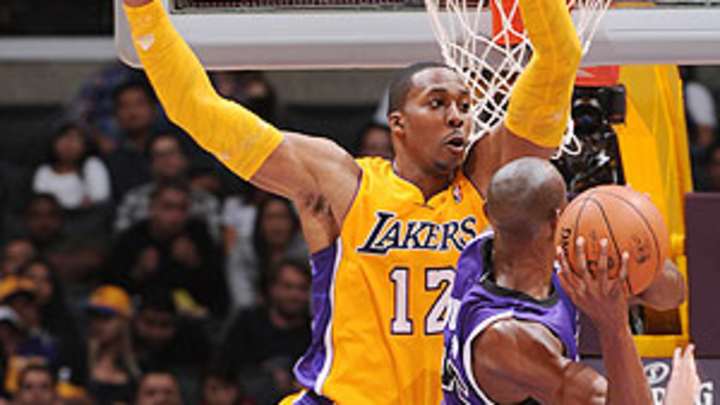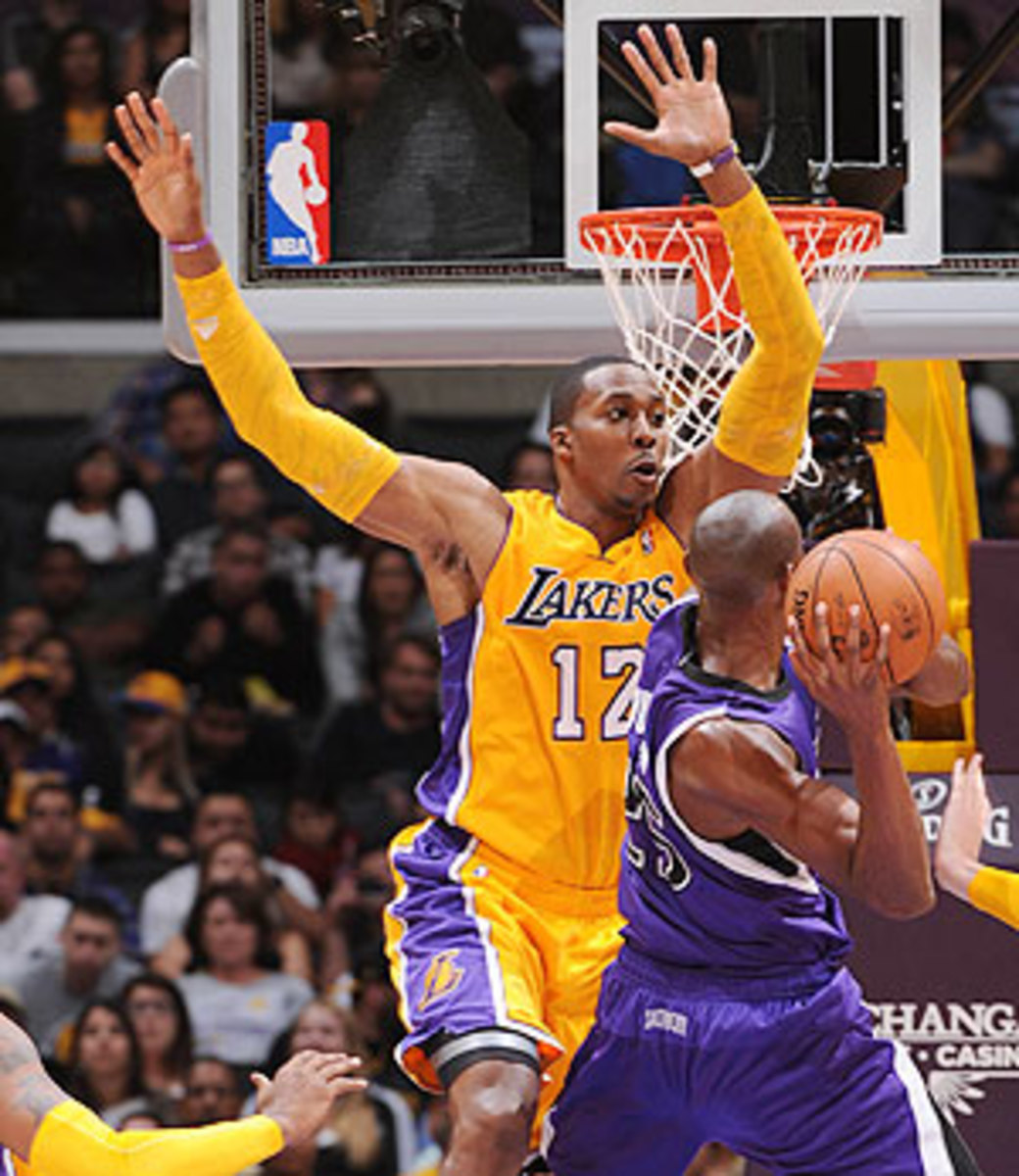Dwight Howard: 'I should have won' 2012 Defensive Player of the Year

Dwight Howard finished third in DPOY voting last season. (Andrew D. Bernstein/NBAE via Getty Images)

By Ben Golliver
As complicated, painful and regrettable as Dwight Howard's 2011-12 season was, you would think he would run the other direction when asked about any aspect of it. You would be wrong, though, as Howard recently reopened that massive can of worms to express dissatisfaction with the NBA's 2012 Defensive Player of the Year voting results.
New York Knicks center Tyson Chandler received 311 points in the voting, beating out Oklahoma City Thunder forward Serge Ibaka, who received 294 points. Howard, then with the Orlando Magic, finished in a distant third, receiving 186 points. It was the first time since the 2007-08 season that he hadn't won the award.
ESPNLA.com reported Monday that Howard thought he was short-changed last season and that he believes he should have won the award for the fourth straight season.
"I thought I should have won it last year, to be honest with you," Howard told reporters after practice Monday. "I was a little bit upset about that."
"I felt like I did my job to win it. I also feel like I didn't because of the whole situation," Howard said, referring to the uncertainty surrounding his future with the Magic and the distraction it became. "That played a factor in it."
Does Howard have a case here?
His credentials last season were typically excellent: Howard led the league in rebounding last season, with 14.5 per game, and he blocked 2.1 shots per game, good for third in the league behind Ibaka and Washington Wizards/Denver Nuggets center JaVale McGee. He was the clear centerpiece of a Magic team with a number of questionable defensive parts, as he had been for years. There was some slippage: Orlando finished the season tied 13th in defensive efficiency after ranking third in 2010-11, tying for first in 2009-10 and finishing first in 2008-09. Part of that team-wide falloff in 2011-12 can surely be attributed to Howard's absence with a back injury, as he missed 12 games in the lockout-shortened season. Orlando, the East's No. 6 seed, was 33-21 when Howard played; 4-8 without him.
Chandler, meanwhile, made an easily demonstrated impact on the Knicks' defensive numbers. On a team with Amar'e Stoudemire and Carmelo Anthony, players not known for their defensive prowess, Chandler helped New York become the fifth ranked defense, a major improvement over the Knicks' 21st ranking in 2010-11. This after helping the Dallas Mavericks improve from 12th in 2009-10 to seventh in 2010-11. His raw numbers were nice, too: 9.9 rebounds and 1.4 blocks per game. Not quite apples to apples with Howard, in part because he played five minutes less per game, but certainly worthy of league-wide recognition. The fact that Chandler appeared in 62 games, compared to Howard's 54, surely weighed in the minds of voters. In case you're interested, for comparison's sake, New York, the East's No. 7 seed, was 34-28 with Chandler and 2-2 without him.
Ibaka was a legit candidate, too, even if his game is more one-dimensional than Chandler's or Howard's. An absurdly prolific shot-blocker, Ibaka averaged 3.7 blocks per game on the ninth overall defense in 2011-12. Couple the fact that he appeared in all 66 games for an Oklahoma City team that won the Northwest Division title and earned the No. 2 seed in the West, and you have a compelling Defensive Player of the Year case that combines winning, playing a key part in a successful scheme and a singular skill unmatched by anyone around the league.
What to take from this head-to-head-to-head comparison? From a numbers standpoint, Howard isn't crazy to feel, after the fact, that he got jobbed. But it's also not a crystal clear picture in his favor, either. This was a three-horse race where tiebreakers were going to come into play. Indeed, this was close enough that Howard, and not Chandler, was recognized on the All-Defense First Team.
Even Howard seems to acknowledge that it was circumstantial factors -- his deteriorating relationship with coach Stan Van Gundy, the timing of his April back surgery, his absence from the postseason when the Defensive Player of the Year award was announced in early May -- that swung the process in Chandler's favor. Really, it was probably the timing factor, and not all of his hijinks, that wound up sealing his fate. As the incumbent in a tight three-horse race with the best personal statistical portfolio, he likely would have carried the day had he made it to the regular-season finish line before getting injured. The voting might have come down in a begrudging manner because of his toxic antics, but Orlando's team defense numbers would look better and his impact would be fresher in the minds of the sportswriters and broadcasters casting their ballots.
